Realizing recruitment: How Lowell volleyball player landed her collegiate dream
“How was your day?” senior Eliana Brown heard the Haverford College volleyball coach ask. It was just like every other Zoom call she had with college coaches. “Really good,” Brown responded, despite feeling her lungs constrict in her chest. “Well, I hope I can make your day better,” the coach replied. Brown immediately looked up in disbelief, a wave of emotions slamming into her: shock, joy, relief, and excitement followed one after another. Releasing the breath she had been holding, she straightened in her chair. Brown had just earned herself an offer to play collegiate volleyball at her dream school.
After nearly a decade of playing volleyball, Lowell athlete Eliana Brown will be pursuing the next stage of her career by playing collegiate volleyball at Haverford College. However, Brown’s ride to college athletics was filled with challenges and uncertainties that almost prevented her from realizing her dream.
Brown began playing competitive volleyball in third grade at St. Anne School, winning several championships throughout elementary and middle school. In 5th grade, Brown started playing club volleyball, and a year later, started playing for her middle school’s volleyball team at Roosevelt Middle School. As years flew by, she spent more time on the court, allowing volleyball to play a bigger role in her life.
After playing on Lowell’s junior varsity team her freshman year, Brown was determined to play on the varsity team as a sophomore. Brown faced slim odds of making the team due to the high competition over the limited openings available. At tryouts, the coach had told the athletes that she planned on keeping only one of two outside hitters, the position Brown played. To determine the player that would make the team, tryouts were extended an extra week. The internal pressure she put on herself led her to think like she wasn’t good enough. This negative mindset convinced Brown that she needed to constantly perform to the best of her ability, leaving her with no room for anything less than perfect. “I cried probably every day after those tryouts,” she said. “They were so draining and I was like, ‘I’m not gonna make it.’”
Despite her doubts, Brown made the varsity volleyball team, but then she faced an even tougher challenge. She felt she had to prove that she was as skilled as the other players on the team to secure time on the court. During her first game on the varsity team, Brown played half of the second set, significantly less than the playing time she got on previous teams. She had gone from being a starter to standing on the sideline for most of the game. She explained that this was a wake up call for her as she realized she would need to work harder. “I knew I definitely wanted to play more and so I really pushed myself,” she said. Brown did this by putting all her effort into practices and learning from her mistakes. “After that, I became a starter, and played all around.”
As the volleyball season went on, Brown struggled with self confidence, but support from her coach helped change that. She would often feel afraid and timid on the court in fear of making a mistake that would impact her team. “It was definitely really scary the whole time,” she said. However, Brown’s confidence started improving after she noticed the trust her coach put in her, despite the mistakes she made on the court. “Seeing that she put me in and didn’t even take me out when I was doing bad, really built my confidence,” Brown said. “If she trusts me, then I should trust myself. I’m probably good enough if I’m good enough for her.”
In Brown’s sophomore year, a decisive victory boosted her confidence to believe she could play volleyball beyond high school. The Lowell varsity volleyball team won the Division Three State Championships. She started and played the entire duration of the game, allowing her consistency and skill to play a large part in the state championship win. For the first time in her volleyball career, Brown’s perspective changed. Playing volleyball beyond high school was never on her radar because of the high competitiveness, however, the state championships gave her confidence that her skills could be good enough for college volleyball.
Throughout Brown’s years of playing volleyball, she had developed a distinct love for the sport. Playing with several people from different teams allowed Brown to appreciate the importance of teamwork required in volleyball. As an outside hitter, the communication from setter to hitter is essential to the success of the team, and being able to work together to achieve victories was a feeling Brown held on to. “I like being able to have teammates to rely on,” Brown said. “I don’t even have a word to describe how much I love it.” Additionally, when school became stressful, Brown would use volleyball as an outlet to take her mind off of the demanding workload.
At the start of Brown’s recruitment process in sophomore year, she did research, contacted coaches, and struggled with rejection. She first began by looking at schools on the Next College Student Athlete (NCSA) website. She contacted the schools she was interested in, emailing them information about her academic and volleyball background. After this initial step, some schools would immediately decline to follow-up with Brown while others kept in contact or scheduled a Zoom call. “For my very first phone call, I was so scared,” she said. “I looked at all these interview questions that they could potentially ask me.” As online meetings with coaches became more frequent, Brown’s nerves dwindled. She would stay in contact with coaches, reviewing past games, pulling film to send, and sharing highlights of her playing volleyball. This process was exhausting. “Recruiting was not fun at all,” she said. “Sending out emails and getting rejected, or not getting responded to, or talking to coaches is so stressful.” Being turned down immediately from schools wasn’t the hardest part. Brown struggled when the rejections arrived after establishing a relationship and communicating with college coaches for weeks.
The frustrations of recruiting only increased when the COVID-19 pandemic canceled all volleyball games and practices. The only way coaches could evaluate Brown’s skills on the court was through film retrieved from games, but having no additional games left Brown with limited highlights to send to coaches.
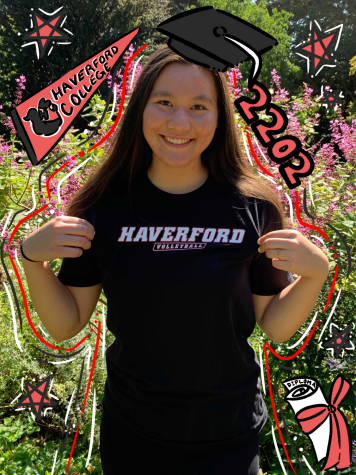
In December 2020, gyms started reopening and Brown returned to volleyball practices, excited to display her potential. Almost immediately, another obstacle was thrown at Brown. Brown was engaged in a familiar routine of drills, performing the same footwork she had been doing for over eight years, when she felt a painful shift in her ankle followed by a loud popping noise. She hobbled to the side of the court, checking her ankle and trying to figure out what the pop meant. She slumped down into a chair, in denial and despondent about the severeness of her injury. It can heal with rest, she thought.
After attempts to practice again, Brown was told she had underestimated the severity of the injury and would need surgery. She had a peroneal tendon subluxation, in which her tendon was extended and displaced, going over the ankle instead of being set behind it. Brown’s injury occurred half way through her junior year. According to her, that is the most crucial year for recruiting because it is the last chance athletes have to prove to coaches their skills on the court. For Brown, her junior year was even more important due to the lack of time she played in her sophomore year because of the pandemic. She now was limited to film from the fall of 2019, which she thought wouldn’t compare to other athletes’ late junior year film. At the time, Brown believed she wouldn’t receive an offer because of her injury. “If I can’t play this year, and I didn’t last year, then it’s over,” Brown said. She spiraled, worried about the impact this would have on her attempts at recruitment. Brown asked herself, How long will I be out? What will I tell the college coaches? Did all my recruiting efforts just go down the drain?
With the injury preventing her from playing, Brown was nervous about remaining in contact with college coaches. She feared they might reject her, but hoped they would still give her a chance even after learning of her injury. Brown still emailed coaches every two weeks and, despite her fears, all of them continued to respond, giving her hope. “The fact that they continued to talk to me, ask about my progress, ask about how my surgery went, showed maybe it’s not over,” Brown said.
As Brown started to heal and slowly worked toward returning to the court, she knew there was little time remaining to receive an offer to play collegiately. In August 2021, which was before she had to make a decision on the right college for her, she visited her top schools, including Haverford College in Pennsylvania. While Haverford was already a top choice for her because of its rigorous academics, being able to stand on campus and visualize how she might fit in helped Brown realize that it was the school for her. “I love the coach. I love the campus,” Brown said. “I really want to go there.”
A few weeks after her visit to Haverford, Brown received an offer from the Haverford coach to play collegiate volleyball. The relief and joy that overwhelmed her made the entire process worth it. “Recruiting is so much work,” Brown said. “But in the end, it definitely paid off, and I’m really excited.”
With her future set on playing collegiate volleyball, Brown reflected on the journey she took to get there. Despite the physical and emotional setbacks she faced along the way, Brown is looking forward to the opportunities she now has at Haverford. “This was two years in the making,” Brown said. “I [will] be able to continue playing the sport I love, when I know that doesn’t happen to everyone.”
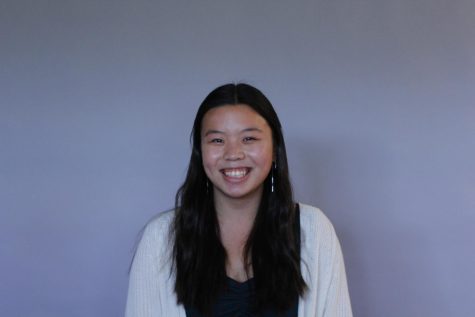
Kelcie is a senior at Lowell who can be found in the journ room working, drinking coffee, and listening to music. Her older brother once mentioned that there are only three guarantees in life: death, taxes, and Kelcie not waking up to her alarms. She also happens to have a paradoxical relationship with chicken… go figure.


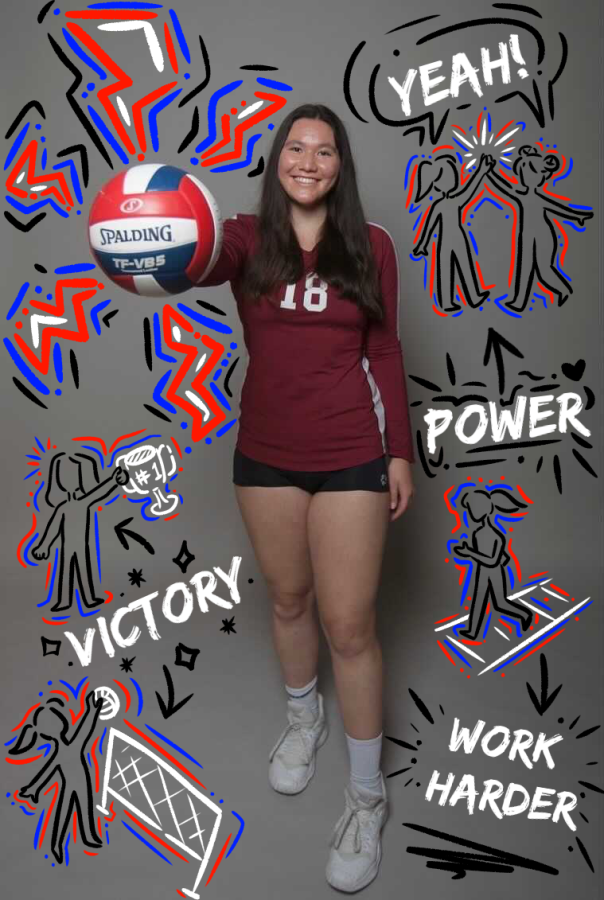

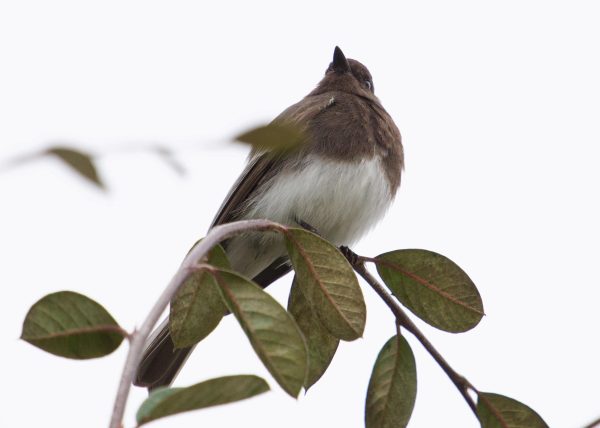
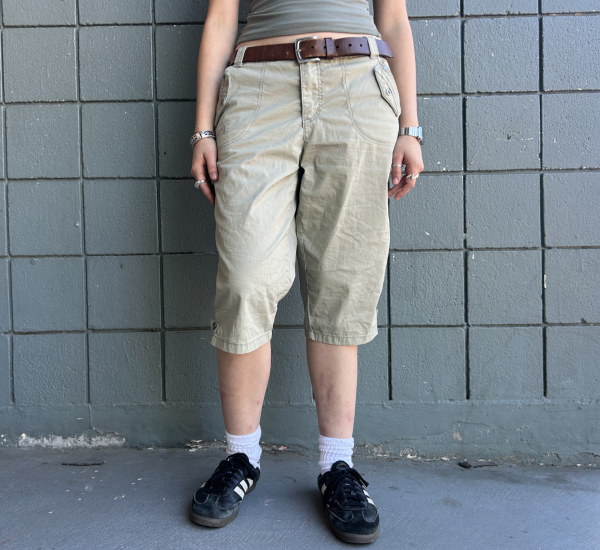

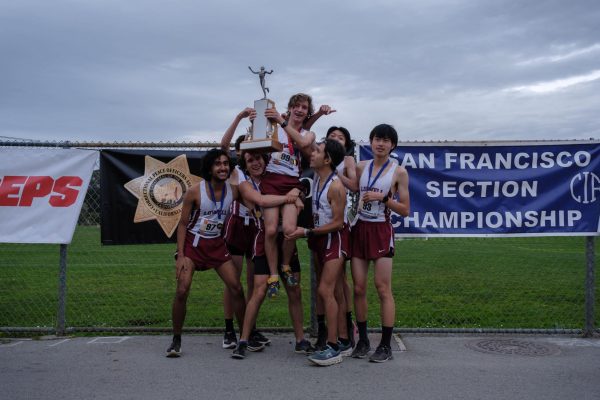
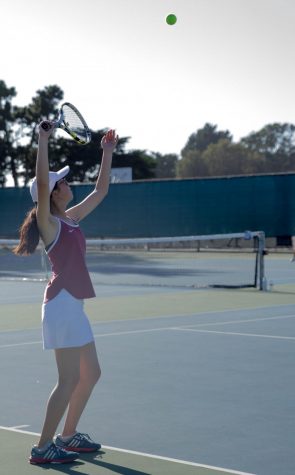
Ms. Komlos • Apr 24, 2022 at 7:56 am
Congrats Eliana!! You earned it!!! Incredible.